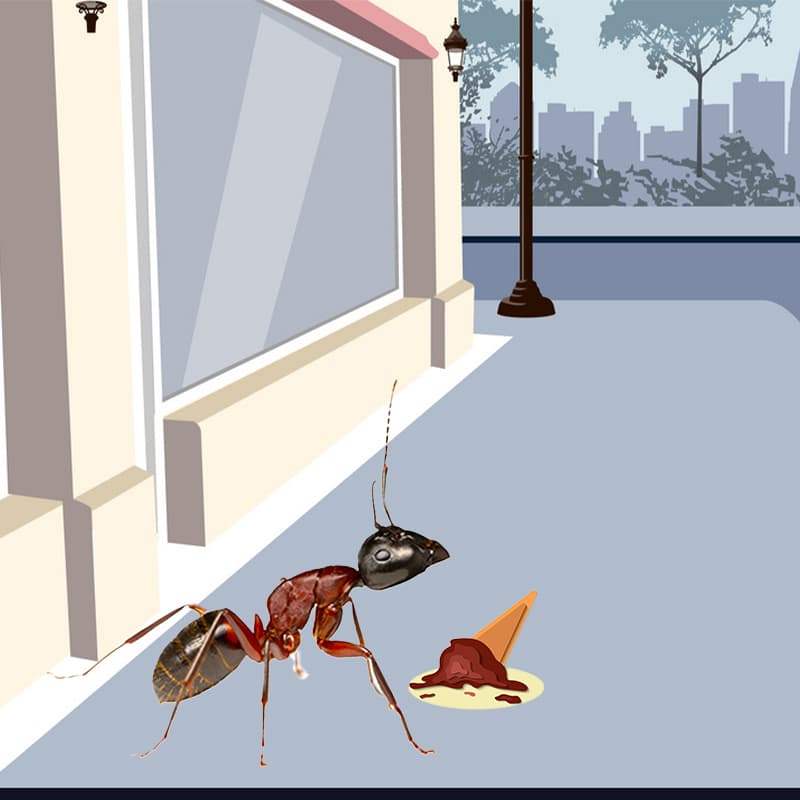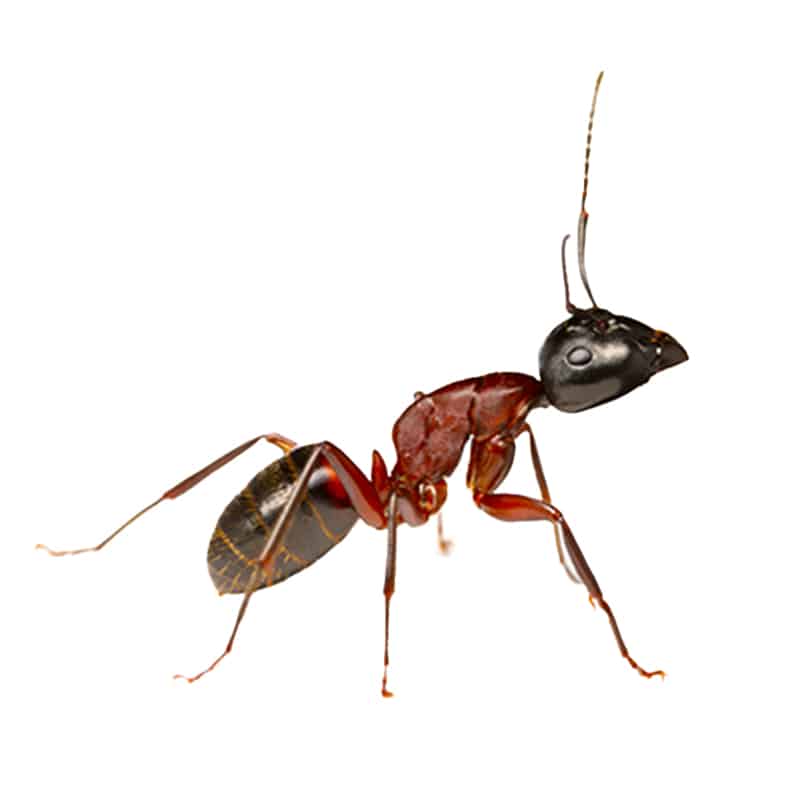Where the sidewalk ends is where you’ll find the headliner for this bad a$$ bug blog. Actually, that isn’t the only place you’ll find them. They are found throughout the United States in cracks in driveways, under sidewalks, in walls, under floors, inside insulation, under rocks and bricks and pavers, next to buildings, alongside curbs, and in cracks in the pavement. Since it wouldn’t be practical for the bug namers of the world to name them driveway-sidewalk-wall-floor-insulation-rock-curb-pavement ants, they settled on the simplified version of pavement ants.
Pavement Ant Identification
Pavement ants are light brown to black in color with strangely lighter-colored legs and antennae. They measure approximately 2.5 to 3 millimeters long, with stripey-looking lines on their head and thorax. Pavement ants aren’t aggressive and don’t bite, but if their aversion skills aren’t proving to be effective, they will sting to defend themselves.
While the actual sighting of pavement ant workers is the most likely sign of a pavement ant infestation, you might also find small piles of materials that were excavated by the workers. They aren’t called workers for no reason. Another indicator, although less likely, would be getting a visual on the swarmers.
What Do Pavement Ants Eat?
Whatever the case may be, pavement ants are hungry and make their way indoors to forage for food. Not one to be too picky, they will feed on a wide variety of foods and have been known to enjoy meats, seeds, grease, dead and alive insects, and the ever-so-popular honeydew that is created by aphids. If you’d like to sit down and enjoy a meal with them, they will happily share whatever human food you are eating.
Pavement ants are selfless and forage for food for their friends and family as well as for themselves. Practicing extreme resourcefulness, they set up trails that will lead all of their buddies from the nest to the food source, whether that food source or nest is indoors or outdoors.
How To Get Rid of Pavement Ants
If you think you have some unwanted pavement ants and you aren’t quite sure what to do, well, have no fear because HowToPest.com is well versed in all things pavement ant related. We’ve got you covered. Read on, my bug blog reading pretties.
Locating the pavement ant colonies is the first step in recovering from a pavement ant infestation. Take a stroll around the foundation of your home and see if you can find their nest. Check under logs and rocks and garden gnomes and whatever else you might have hanging out in your yard. Leave no stone unturned. Actually, that might be a little excessive, but you get the jist.
Nests can be identified by the entrance holes that are surrounded by small volcano-shaped mounds. Their super busy queen can grow their colonies to more than 10,000 workers that can establish a territory that is over 20 square feet wide and 35 inches deep. Basically, they are no joke, and if left unchecked, well, I don’t think you want to go there. The best products to get rid of outdoor pavement ants can be found HERE. These products even have a residual effect that can give you lasting protection for up to 90 days!
If pavement ants have made their way inside your home, try looking for their nests under sinks, around baseboards, and where the carpet ends. The best way to get rid of pavement ants inside your home is to take out a hit on the queen. The bait stations found HERE effectively entice the ants inside where they will then take the bait and share it with all their friends, family, and most importantly, that super-breeding queen.
If pavement ants have gotten comfy and cozy where your sidewalk ends, or in your yard, or under your beloved garden gnome, or beneath the Santa Claus figurine you’ve left out since last Christmas, or if they have made their way inside your home, taking action now will prevent that queen from delivering her next batch of pavement ant eggs.







